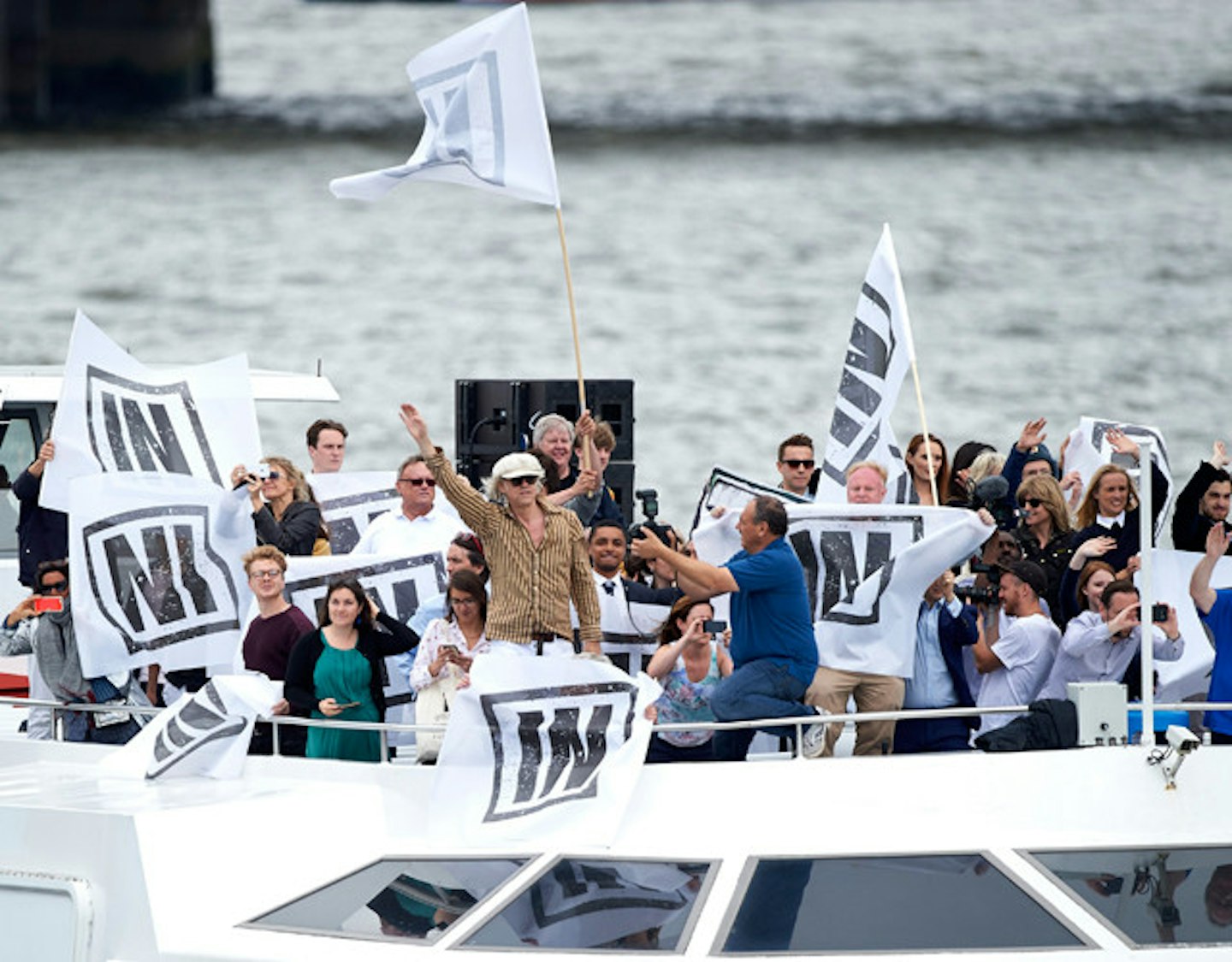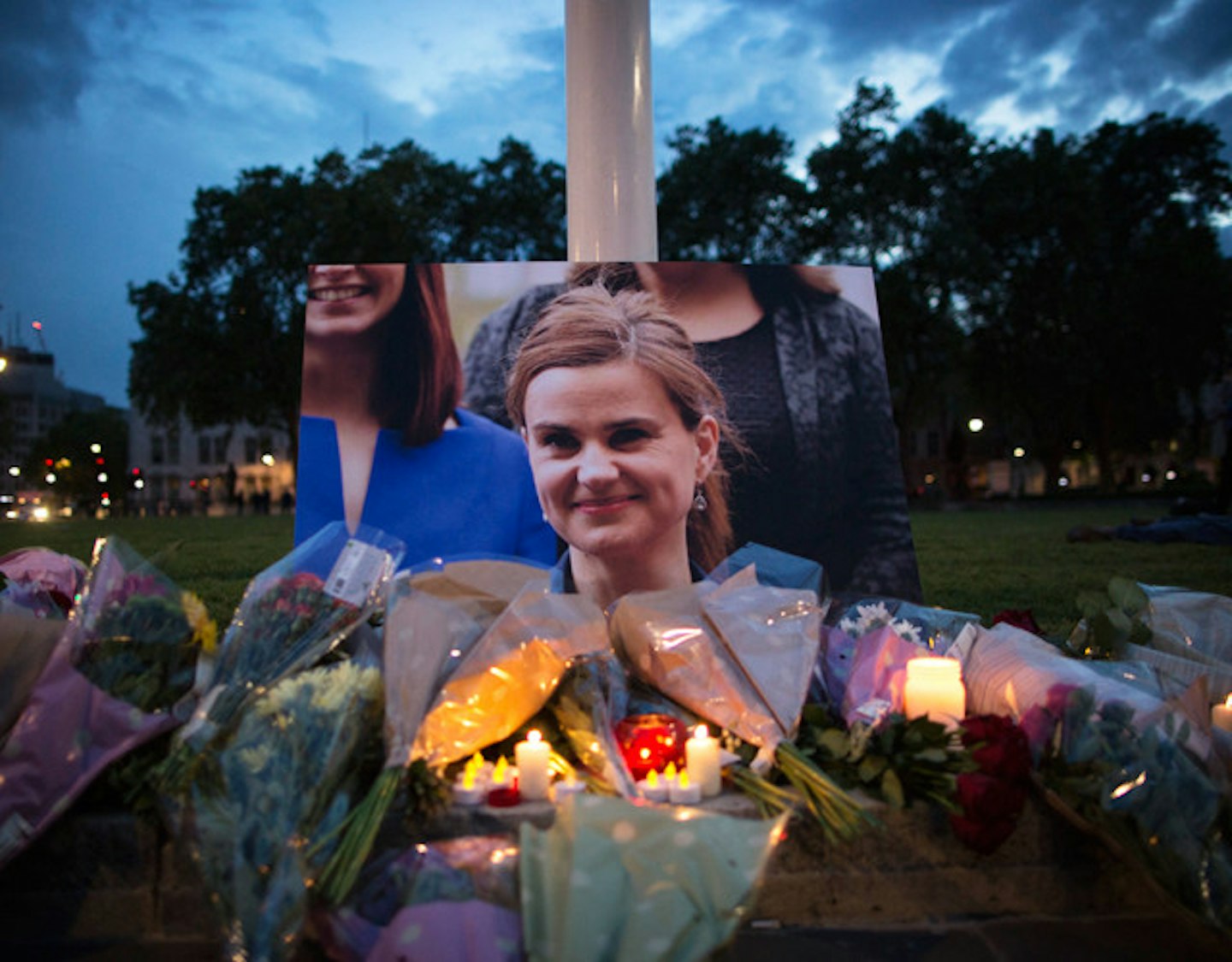You know that feeling when you’ve been with a friend or acquaintance who is completely negative? Negative about the world, negative about their job, negative about their relationship, their friends or their family? That slow, hot and heavy way their negativity affects you, almost infects you and leaves you feeling as though you’ve absorbed some of their bitterness, misery, anguish or hatred? We’ve all felt it at some point, we’ve all come away from an encounter feeling slightly sadder or more hopeless and thinking ‘I really need to not see that person for a while.’
In recent weeks, as the EU Referendum campaigns have reached fever pitch. I have argued with friends and family about it. I became enraged with my own grandmother because she was reciting something she had 'heard on the TV about immigration' and almost hung up on her. I have observed people be incredibly rude to and damning about one another on social media because of their stance on Britain’s EU membership. I have received abuse on Twitter for being in favour of remaining in the EU - I have been called 'stupid' mulitple times by people I have never met.
Negativity is contagious – I don’t need to tell you that, we all know it to be true. Psychologists have also found it to be true; multiple studies have found that what other people think about something can affect the way we think about it and, more importantly, confirmed that negative opinions cause the greatest attitudes shifts – not just from good to bad, but from bad to worse. Emotional contagion is a very real psychological phenomenon rooted in human beings’ ability to experience empathy. While this helps us to share positive feelings and support one and other in times of need, as with catching a cold it means we can subconsciously catch negative emotions from each other and take them on.
This week, the sweaty feverish incubation period has come to end and our nation has well and truly caught a cold. This referendum debate will not be remembered as a conversation about the future of our country. It’s will not be remembered as a debate about economics. Nor will it be remembered as a serious conversation about how our country is governed. It will not be thought of as a balanced and rational laying out of the (valid) reasons why the European Union poses problems for our country alongside the case for remaining because of the benefits our membership of it brings. No, it will be remembered as a largely negative play for power which.
On Sunday we all went into a new week with the horrific news that people had been murdered in a mass shooting at a gay club in Orlando, on Monday people all over the world staged vigils in support of those affected. Inevitably, the reaction in this country was one of shock, horror, outrage and, inevitably, a relief that ‘it doesn’t happen here’ because ‘unlike America guns are difficult to come by in Britain’. Leave.EU attempted to capitalise on the atrocious event for their own gain.
From the deeply sad to the sublime and then on to the ridiculous, by Wednesday a baffling battle was taking place on the Thames in London in which Nigel Farage and Bob Geldof attempted to make a point about Europe but ended up simply performing the kind of embarrassing dad joke that make your insides curl because there’s absolutely nothing funny about it.

Yesterday, Nigel Farage stood in front of a poster which showed queues of refugees and bore the slogan ‘Breaking Point, the EU has failed us all’. In fact, that picture, blown up so large on that billboard, was not of Britain at all. It was taken in Slovenia. It has since been reported to the police with a complaint that it is not only misleading but incites racial hatred and breaches UK race laws. Because of this poster, yesterday was already a bad day for Britain; this was a new low for our country’s politics.
How utterly ridiculous it all seems now. Since the terrible news that Labour MP Jo Cox, a mother of two and friend of many, had had her life taken just after lunchtime yesterday by a man who allegedly shouted ‘Britain First’ as he shot and stabbed her in the street, the hateful headlines, campaigning and negative debate feels nothing short of farcical.
Her murder did not happen in a vacuum. There is no point pretending otherwise, despite the fact that there are many who would rather stop this conversation by accusing people of ‘politicising her death’. But, how is the death of a female Labour MP, during a referendum campaign about Britain’s membership of the European Union at the hands of a man who, reportedly, shouted ‘Britain first’ as he attacked her not political?
None of this can be cited as a direct cause of Jo Cox's death, indeed it's too soon to pass comment on her killer's motives, but it does serve as a very ugly backdrop and context for it. Inflammatory language, dog-whistle politics and not even thinly-veiled racism have been being blasted through a media megaphone for weeks now. Headlines of right wing publications have told people that our country has been 'taken over', 'under threat' and at 'breaking point' and the articles they've prefaced have said things like 'we must reclaim our country' almost echoing Donald Trump's 'Make America Great Again' refrain. This combative, aggressive and negative rhetoric has long been divisive: it is the language of warfare, it invokes invasion and defence, it speaks of being under siege and, ultimately inspires a sense of urgency and whips up fear. In this particular campaign prejudices and insecurities have been exploited in an attempt to win votes. Misinformation and exaggerations about what would happen either way - whether Britain remained or left the European Union - have been put out by both sides in an attempt to cement support for their cause when the reality it we don't know for sure how things would play out.

That is the very definition of propaganda – ‘ideas or statements that are often false or exaggerated’ which are spread ‘in order to help a cause, a political leader or government.’ And the thing about propaganda, especially when it is being used by trusted and elected politicians, is that people believe it. For instance, pollsters Ipsos Mori found that nearly half of Briton’s believe Vote Leave’s claim that the UK pays £350 million a week to the European Union.This is a figure which has been repeatedly criticised and debunked by the UK Statistics Authority for being ‘misleading’.
Nothing happens in a vacuum. Nothing. Everything, eventually, connects. Any event – be it the unveiling of a campaign poster, a political speech, a publicity stunt involving old men and boats or a horrific atrocity and act of terror such as Orlando – has a ripple effect. It’s hard not to feel bad about the state of things right now. You can say that sounds ‘trite’, ‘overly emotional’ or ‘naïve’ but if you do, to you I say this: ‘how could you possibly feel anything other than sad about the state of our country?’
As Alex Massie points out it was only last month that Nigel Farage said ‘if people feel that voting doesn’t change anything, then violence is the next step.’ We live in a hyper-connected time, one where you press one button and say something to the world and everything else reacts, almost instantly. What we need is to stop. To hit pause. Power everything down, take a step back and seriously think about what sort of country we want to be before we switch things back on. Negativity is contagious and right now – I don’t recognise us. Hate is everywhere, anger has become our default setting, fear has seeped into our everyday discourse and someone, who was just doing their job, has been killed.
For those of us who didn’t know Jo Cox, or perhaps didn't know who she was until we learned that her life had been brought to an unjust end yesterday we would do well to listen to the maiden speech made after she became an MP last year and take heed immediately,
‘While we celebrate our diversity’ she said, ‘what surprises me time and time again as I travel around the constituency is that we are far more united and have far more in common with each other than the things that divide us.’
You might also be interested in:
In 20 Years We’ll Look Back On This Race-Baiting Mayoral Campaign With Shame
Follow Vicky on Twitter @Victoria_Spratt
This article originally appeared on The Debrief.
